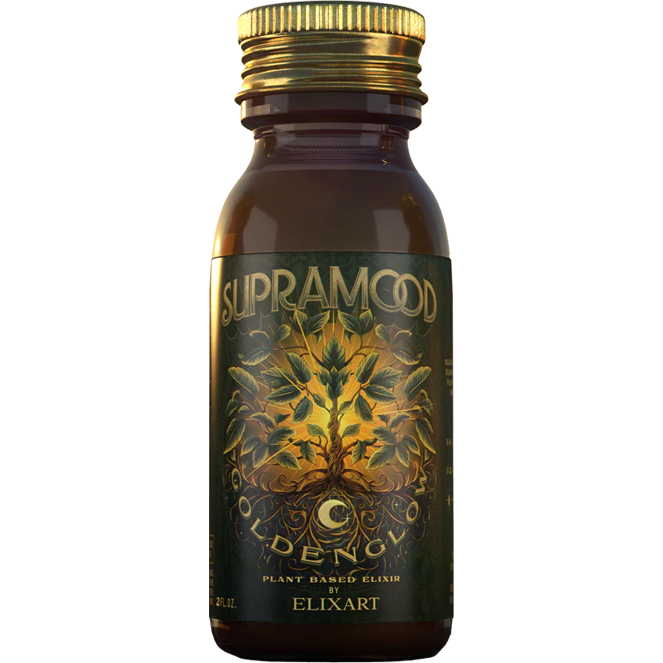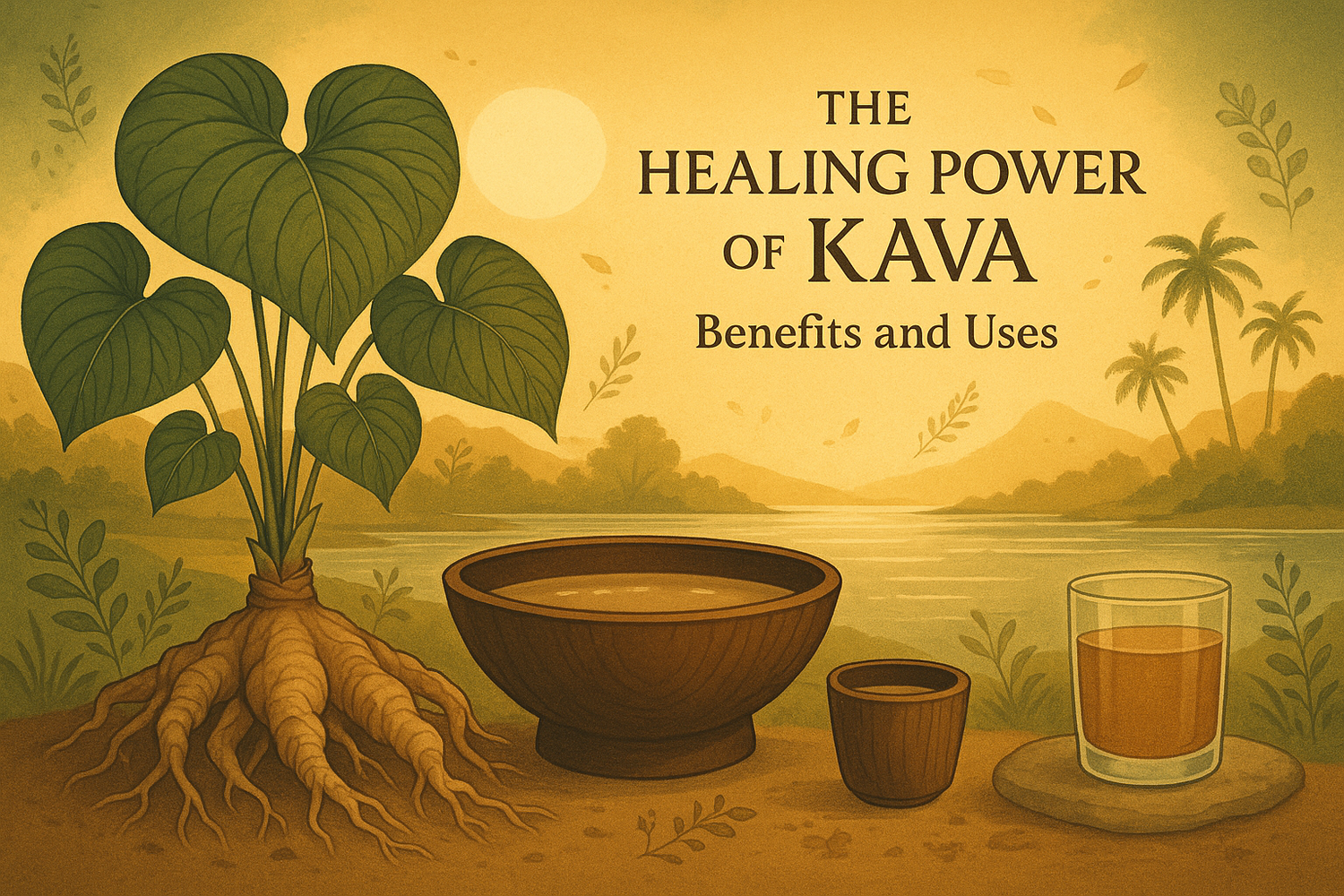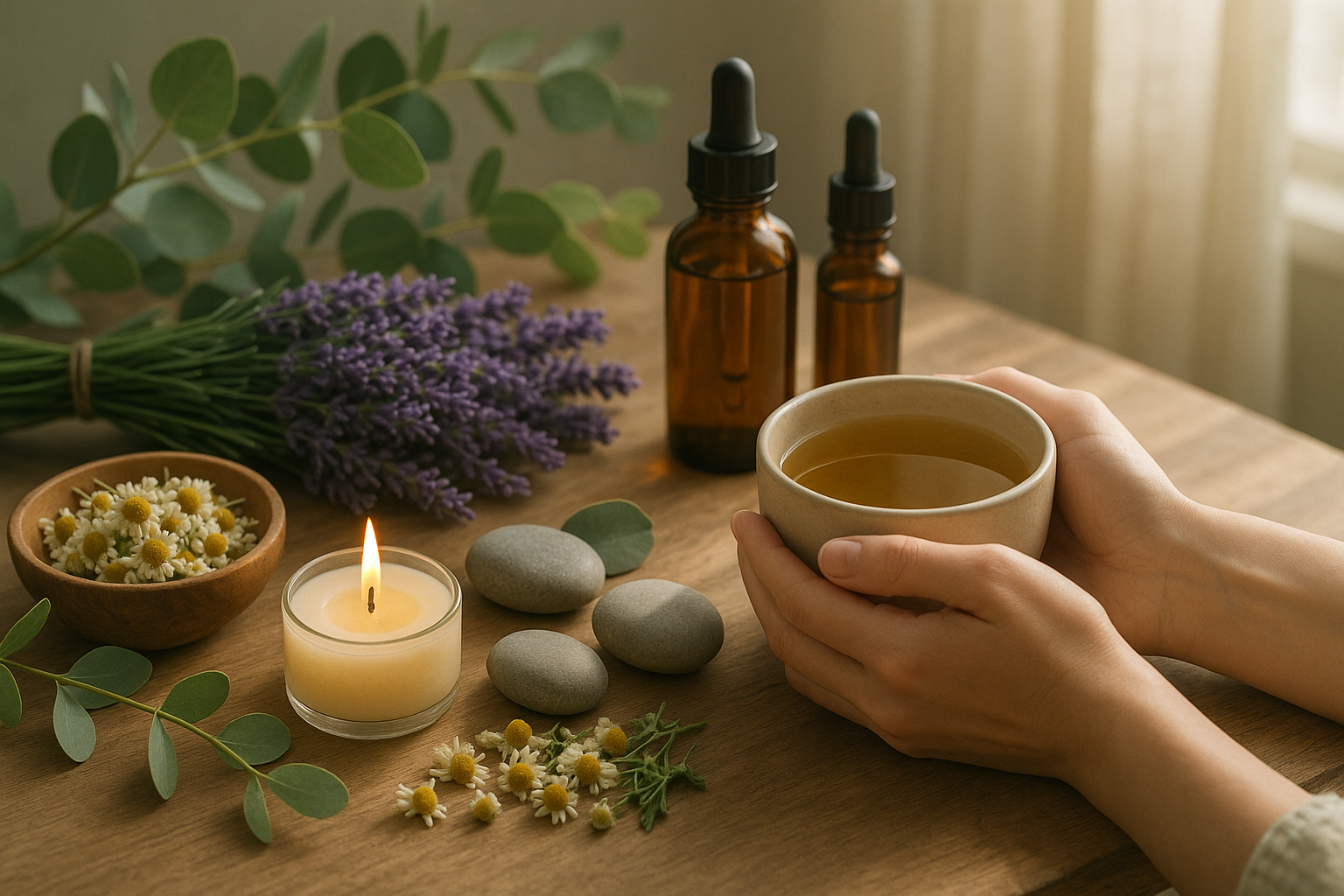Kava is a plant native to the South Pacific, known for its calming properties. For centuries, the roots of kava have been used in South Pacific cultures to make a ceremonial drink. This drink is famous for its ability to relax the body and mind.
The active ingredients in kava, called kavalactones, are responsible for its therapeutic effects. These compounds are believed to have various advantages. Many people use kava as a natural remedy for anxiety, sleep problems, and stress relief. It's no wonder that kava has become popular outside of its traditional usage.
Understanding the history and traditional uses of kava helps us better understand its potential benefits in modern wellness practices. The healing properties of kava present an interesting alternative for managing stress and improving overall well-being.
The Science Behind Kava's Therapeutic Properties
Kavalactones are the active ingredients found in the roots of the kava plant, primarily responsible for its therapeutic properties. These compounds interact with the central nervous system to produce calming effects.
Potential Benefits of Kavalactones
- Anxiety Relief: Kavalactones are known to bind to GABA receptors in the brain. This interaction is similar to how benzodiazepines work, promoting relaxation without the sedative effects.
- Promoting Relaxation: Studies have shown that these active compounds can significantly reduce symptoms of anxiety and stress, providing a natural alternative to pharmaceutical anxiolytics.
- Improving Sleep Quality: Research indicates that kava can enhance sleep quality by reducing the time it takes to fall asleep and increasing overall sleep duration. This makes it particularly beneficial for individuals suffering from insomnia or disrupted sleep patterns.
Supporting Research
Several studies have explored kava's effectiveness in these areas. For instance, a study published in Phytotherapy Research found that participants who consumed kava experienced a notable reduction in anxiety levels compared to those who took a placebo. Another study highlighted in the Journal of Clinical Psychopharmacology demonstrated improvements in sleep quality among individuals taking kava supplements.
Understanding these scientific insights can help you make informed decisions about incorporating kava into your wellness routine.
Exploring Different Forms of Kava and Their Uses
Kava is available in different forms, each with its own benefits and convenience. The main forms include:
- Tea
- Capsule
- Powder
- Liquid Extract
Kava Tea
The most common form for anxiety relief is kava tea. This involves steeping kava root powder in hot water, allowing the active ingredients, kavalactones, to infuse into the liquid. People often prefer kava tea because of its traditional preparation method and soothing ritual that can enhance the relaxation experience.
Capsules
Kava capsules provide a convenient option for those who prefer a quick and measured dose. They contain finely ground kava root or kavalactone extracts, ensuring consistent potency. Capsules are particularly useful for users who need a portable and discreet way to consume kava.
Powder
Kava powder offers versatility in consumption methods. It can be mixed into beverages, smoothies, or prepared traditionally as tea. This form allows users to control the dosage and experiment with different preparations to suit their preferences.
Liquid Extract
Liquid extracts are concentrated forms of kava that can be added to water or other drinks. They offer a potent dose of kavalactones and are rapidly absorbed by the body, providing quicker effects compared to other forms. Liquid extracts are ideal for those seeking immediate relief from anxiety or stress.
Each form of kava has its unique advantages, making it easier to incorporate this therapeutic plant into various lifestyles and routines.
1. Relieving Anxiety and Reducing Stress Levels
Kava has gained attention for its potential in relieving anxiety and reducing stress. Its primary active components, kavalactones, interact with various neurotransmitter systems in the brain to produce calming effects.
How Kavalactones in Kava Help with Anxiety Relief
Kavalactones are specific compounds found in the roots of the kava plant that contribute to its therapeutic properties. There are six major kavalactones that have been extensively studied:
- Kavain
- Dihydrokavain
- Yangonin
- Desmethoxyyangonin
- Dihydromethysticin
- Methysticin
Each of these kavalactones plays a role in regulating brain activity and the overall effect of kava.
How Kava Works to Reduce Anxiety and Stress
The calming effects of kava can be attributed to several mechanisms:
- GABA Receptor Modulation: Kavalactones enhance the activity of gamma-aminobutyric acid (GABA) receptors, the primary inhibitory neurotransmitters in the brain. This enhancement leads to relaxation and reduced anxiety.
- Inhibition of Noradrenaline Uptake: Some studies suggest that kavalactones inhibit the reuptake of noradrenaline (norepinephrine), a neurotransmitter involved in the body's stress response. By preventing its reuptake, kava may help maintain lower levels of noradrenaline, contributing to stress reduction.
- Interaction with Dopamine and Serotonin Systems: Kavalactones also interact with dopamine and serotonin pathways, which are crucial for regulating mood and emotional states. This interaction can lead to improved mood stability and reduced anxiety levels.
Scientific Research Supporting Kava's Efficacy
Several studies have examined the effectiveness of kava in alleviating symptoms of anxiety:
- A meta-analysis published in Journal of Clinical Psychopharmacology reviewed multiple clinical trials and found that kava significantly reduced anxiety compared to placebo.
- Another study conducted by the Psychopharmacology Department at Melbourne University demonstrated that participants taking kava experienced notable reductions in anxiety symptoms without severe side effects.
Practical Experiences and Anecdotal Evidence
Personal experiences often resonate more deeply than clinical data alone:
"After incorporating kava into my routine, I noticed a significant drop in my anxiety levels. It helped me stay calm during stressful situations at work," shares one user on a popular wellness forum.
These anecdotal reports add another layer of credibility to the scientific findings.
Benefits Beyond Anxiety Relief
Kava's benefits extend beyond just reducing anxiety:
- Stress Reduction: By promoting relaxation through GABA receptor modulation and other mechanisms, kava can significantly lower stress levels.
- Mood Stabilization: Interaction with dopamine and serotonin systems not only helps combat anxiety but also stabilizes mood swings.
Neurotransmitters' Role in Mental Well-being
Understanding how kavalactones work helps appreciate why many turn to this South Pacific plant for relief from
2. Improving Sleep Quality for Better Overall Well-being
Kava has gained attention as a natural sleep aid, particularly for individuals struggling with insomnia. Scientific research indicates a strong link between kava consumption and improved sleep quality, making it a valuable addition to your nightly routine.
The Link Between Kava and Improved Sleep Quality
Studies suggest that the kavalactones in kava play a crucial role in enhancing sleep. These active ingredients are believed to interact with neurotransmitter systems in the brain, particularly the GABA (gamma-aminobutyric acid) receptors, which are known to promote relaxation and reduce anxiety. When these receptors are activated, they help to calm the nervous system, making it easier for you to fall asleep and stay asleep.
Research Supporting Kava’s Effectiveness
Several studies have been conducted to explore kava's potential as a sleep aid:
- A study published in the journal Sleep Medicine found that participants who took kava experienced significant improvements in sleep quality compared to those who took a placebo.
- Another research article in Phytomedicine highlighted that kava extract could reduce the time it takes to fall asleep and increase overall sleep duration.
These findings support the notion that kava can be an effective natural remedy for insomnia.
Other Mechanisms Through Which Kava May Contribute to Better Sleep
Beyond its interaction with GABA receptors, kava may influence sleep through several other mechanisms:
- Anxiolytic Effects: By reducing anxiety levels, kava can indirectly improve sleep quality. Lower anxiety levels mean fewer racing thoughts at bedtime, allowing you to drift off more easily.
- Muscle Relaxation: Some studies suggest that kava has muscle relaxant properties. Relaxed muscles contribute to overall physical relaxation, making it easier for your body to transition into sleep mode.
- Mood Stabilization: Kavalactones may also have mood-stabilizing effects, which can help manage symptoms of depression and stress—common culprits behind poor sleep quality.
Different Forms of Kava for Sleep Improvement
Kava is available in various forms, each offering unique advantages:
- Kava Tea: One of the most popular forms, especially for those seeking anxiety relief and better sleep. The ritual of drinking tea can also be soothing.
- Capsules: Convenient for those who prefer not to taste kava or need precise dosing.
- Powder: Can be mixed with water or other beverages; offers flexibility in dosage but requires preparation.
- Liquid Extracts: Often more concentrated; quick absorption makes them ideal for people needing fast relief.
Practical Tips for Using Kava as a Sleep Aid
To maximize the benefits of kava for improving sleep quality:
- Timing: Consume kava 30 minutes to an hour before bedtime to allow its effects to set in.
- Dosage: Start with a low dose and gradually increase until you find what works best for you. Consult a healthcare professional for personalized advice.
- Consistency: Use kava regularly but responsibly to maintain its effectiveness without developing tolerance or dependence.
Testimonials and Real-life Experiences
Many users have reported positive experiences with using kava as a natural remedy for insomnia:
"I struggled with insomnia for years and tried numerous remedies with little success. After incorporating kava tea into my nightly routine, I noticed a significant improvement in my ability to fall asleep and stay asleep." - Jane D.
"Kava capsules have been a game-changer for my sleep health. I take one capsule an hour before bed, and it helps me unwind after stressful days." - Mark S.
These testimonials highlight the practical benefits of kava as part of a holistic approach to managing sleep issues.
Understanding how kavalactones interact with your body's systems provides valuable insight into why many consider kava an effective natural remedy for improving sleep quality.
Safety Precautions: Understanding the Risks and Side Effects of Kava Use
Kava's healing properties come with certain risks that require careful consideration. There have been reports linking kava consumption to liver toxicity, which has led to bans and restrictions in some countries. Although we don't fully understand how kava damages the liver, it's important to be aware of this potential risk.
1. Liver Toxicity and Regulatory Actions
Instances of liver toxicity have prompted health authorities in several countries to impose bans or strict regulations on kava products. For example, Germany, Switzerland, and Canada have all taken measures to control or restrict the sale of kava due to concerns over its hepatotoxic effects.
2. Consulting a Healthcare Professional
Before adding kava to your wellness routine, it's crucial to consult with a doctor. Kava has the potential to interact with various medications, which could either reduce their effectiveness or increase the chances of experiencing negative effects. This is especially important for individuals taking medications for anxiety, depression, or liver conditions.
3. Responsible Usage and Dosage Guidelines
To ensure safety when using kava:
- Follow recommended dosage guidelines provided by reputable sources or healthcare professionals.
- Avoid excessive consumption to lower the risk of side effects.
- Purchase kava from trustworthy suppliers who prioritize quality and purity to minimize the chances of contamination or adulteration that may worsen side effects.
These key points should always be kept in mind when considering kava usage.
Important Reminders:
Here are some additional things you should remember:
- Avoid Alcohol: Combining kava with alcohol can intensify its sedative effects and raise the risk of liver damage.
- Monitor Symptoms: Stay alert for symptoms such as jaundice, fatigue, nausea, or abdominal pain that could indicate liver issues.
- Short-term Use: Limiting kava consumption to short-term periods might help reduce potential risks while still reaping its benefits.
Understanding these precautions will enable you to make informed choices about using kava safely. By acknowledging the associated risks and taking proactive measures, you can enjoy its therapeutic advantages while minimizing potential harm.
Seeking Balance: Incorporating Kava into a Holistic Wellness Routine
Balancing the responsible use of kava with other mind-body wellness practices can amplify its benefits. Here are several complementary practices that can enhance the effects of kava in promoting relaxation and overall well-being:
1. Meditation
Practicing mindfulness meditation can elevate the calming effects of kava. Spending 10-15 minutes in quiet reflection or guided meditation can create a serene mental state, perfect for kava's relaxing properties.
2. Yoga
Combining kava consumption with yoga can enhance physical and mental relaxation. Gentle yoga poses and breathwork, known as pranayama, help in releasing tension from your body, aligning well with kava's stress-relieving benefits.
3. Aromatherapy
Using essential oils like lavender or chamomile while consuming kava can deepen the sense of tranquility. Diffusing these oils or adding them to a warm bath can complement kava’s calming effects.
4. Herbal Teas
Drinking herbal teas such as chamomile or valerian root alongside kava can boost relaxation and improve sleep quality. These herbs work synergistically with kavalactones to promote a restful state.
5. Mindful Breathing Exercises
Simple breathing exercises like deep diaphragmatic breathing or alternate nostril breathing can significantly reduce stress levels. When practiced regularly, these exercises augment the anxiety-reducing properties of kava.
Incorporating these practices not only enhances the therapeutic potential of kava but also fosters a holistic approach to mind-body wellness.
The Future of Kava Research and Regulation
Exploring the future of kava involves delving into the potential for future studies to validate its therapeutic benefits. Although current research highlights kava’s efficacy in reducing anxiety and improving sleep quality, more extensive studies are essential to confirm these findings and understand long-term effects.
Areas for Future Research
Several key areas for future research include:
- Elucidating Mechanisms: Investigating how kavalactones interact with brain receptors at a molecular level to promote relaxation and reduce stress.
- Long-Term Safety: Conducting longitudinal studies to assess the long-term safety profile of kava, particularly concerning liver health.
- Dosage Guidelines: Establishing standardized dosage guidelines to maximize benefits while minimizing risks.
Future Regulatory Efforts
The legal status of kava varies globally. While some countries have embraced its use, others have imposed bans or restrictions due to concerns about liver toxicity. Future regulatory efforts should focus on:
- Creating Uniform Standards: Developing international standards for kava production and consumption to ensure safety and quality.
- Educating Consumers: Implementing educational campaigns to inform consumers about safe usage practices, potential risks, and benefits.
Research advancements coupled with thoughtful regulation can pave the way for kava to become a well-recognized option in holistic wellness routines.
Final Thoughts
Responsible use of kava is crucial. Always consult a healthcare professional before incorporating kava into your wellness routine. This step ensures that you are aware of any potential interactions with medications and understand the appropriate dosage for your situation.
Exploring the healing power of kava can be a transformative experience. Kava offers potential benefits in reducing anxiety, promoting relaxation, and improving sleep quality. However, being cautious about its associated risks is essential.
- Consult a healthcare professional: Before starting kava, get medical advice to prevent adverse effects or interactions.
- Understand the risks: Be aware of reports linking kava to liver toxicity and follow recommended dosage guidelines.
- Explore different forms: Try various forms like tea, capsules, or liquid extracts to find what works best for you.
Kava has promising therapeutic properties that many find beneficial. By approaching its use responsibly, you can harness these benefits effectively while minimizing potential risks.
FAQs (Frequently Asked Questions)
What is kava and where does it originate?
Kava is a traditional South Pacific drink known for its relaxing and stress-reducing properties. It originates from the South Pacific and has been used for centuries in ceremonial practices.
What are kavalactones and how do they contribute to anxiety relief and improved sleep quality?
Kavalactones are the active ingredients in kava roots. They have been associated with reducing anxiety and promoting relaxation. Studies also suggest that kavalactones may contribute to improved sleep quality.
What are the different forms of kava available, and how are they used?
Kava is available in various forms such as tea, capsules, powder, and liquid extract. Kava tea is commonly used for anxiety relief, while other forms have different uses and applications.
How does kava help in relieving anxiety and reducing stress levels?
Kava may interact with receptors in the brain to promote relaxation, providing relief from anxiety and reducing stress levels.
How does kava contribute to improved sleep quality, and what other mechanisms are involved?
Consumption of kava has been linked to improved sleep quality. There are other mechanisms through which kava may contribute to better sleep that are currently being studied.
What are the safety precautions associated with kava use?
Reports have linked kava consumption to liver toxicity, resulting in bans or restrictions in some countries. It is important to consult a healthcare professional before taking kava due to potential interactions with medications. Responsible use and following recommended dosage guidelines are also crucial.
How can kava be incorporated into a holistic wellness routine, and what other practices can enhance its effects?
Incorporating kava into a holistic wellness routine involves responsible use and considering other mind-body wellness practices that can complement its effects in promoting relaxation and overall well-being.
What is the potential for future studies on kava's therapeutic potential and legal status?
Future studies may validate the therapeutic potential of kava and establish guidelines for safe use. Additionally, there may be developments in its legal status as more research emerges.
What final considerations should be made when exploring the benefits of kava?
It is important to emphasize responsible use of kava and consulting a healthcare professional before incorporating it into a wellness routine. While exploring its potential benefits, it is crucial to remain cautious of its associated risks.







Leave a comment
This site is protected by hCaptcha and the hCaptcha Privacy Policy and Terms of Service apply.